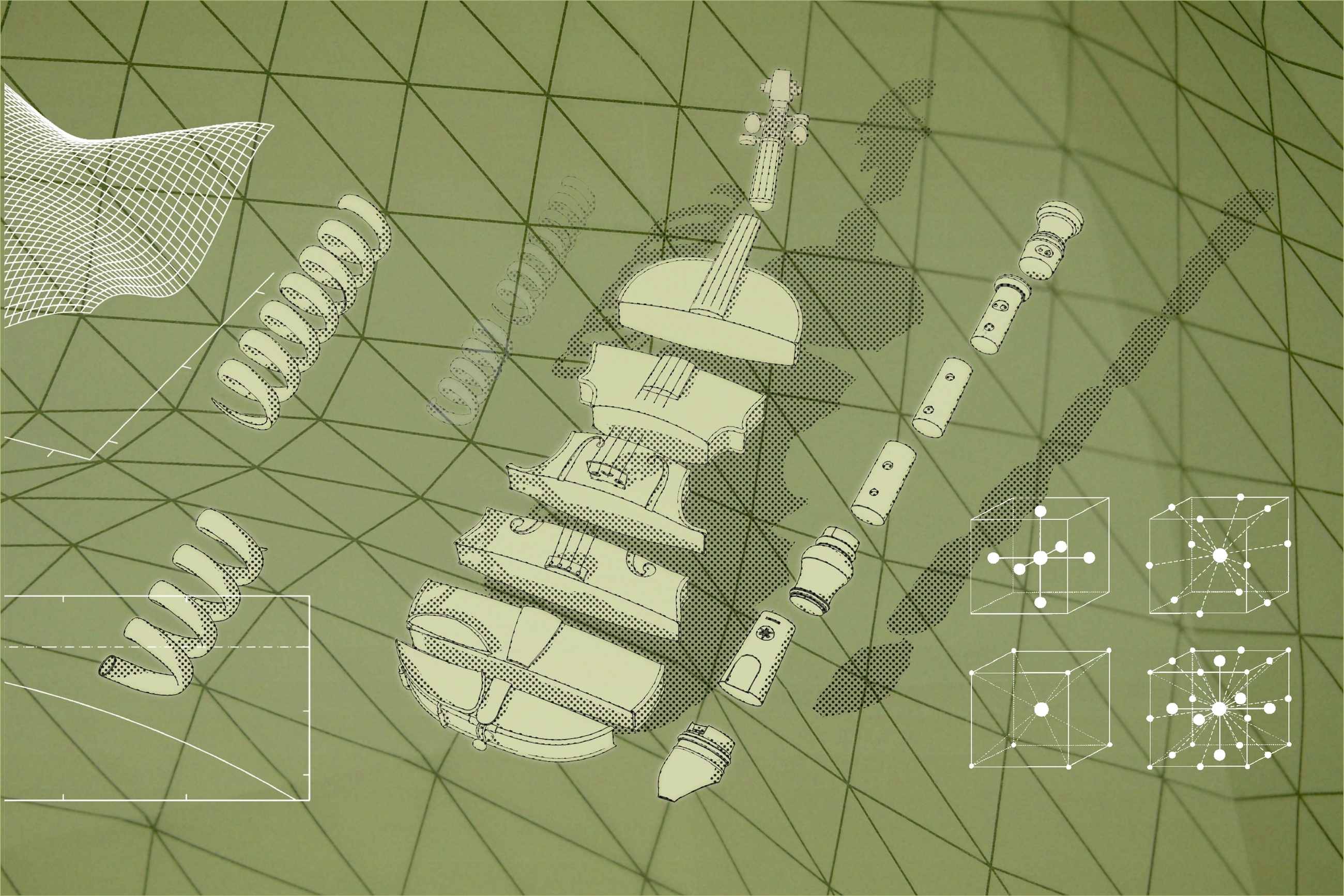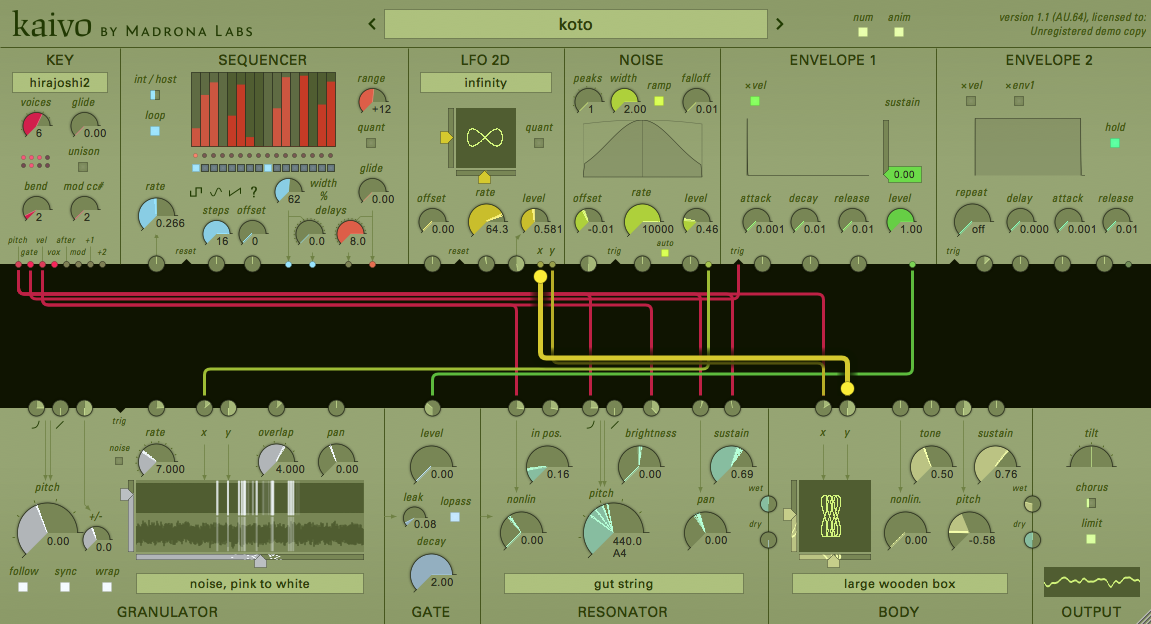About the sound
Kaivo brings some of the latest academic research in physical modeling to a patchable package for the first time. Mathematically speaking, its finite difference time domain (FDTD) models let the player reach inside the instrument and affect the internal vibrations at any point. This allows for a fine degree of realistic detail, like the bridge rattles on a "gut string" model, for example. And while Kaivo is capable of making very realistic sounds, it is also designed to apply this subtlety to abstract creations.
Like a picture is sometimes worth 1000 words, a physical model is worth 1000 samples. Every time a model is triggered, it makes a slightly different sound due to the initial conditions when the sound starts. This subtle variety can quickly give a very lifelike quality to sounds that would be tedious to recreate with sampling. Kaivo has eight different types of tuned resonators, including strings, chimes and springs, each with its own complex response to sound. As for instrument bodies, there are four, including two wooden body models, a metal plate, and a frame drum—all true 2D models.
Expansive spatial sounds are possible in Kaivo, with independent panning available on grains, resonator, and body. Kaivo’s granulator feeds the models from a 2D map of sound with up to four channels. The body is a true 2D vibrating model of a physical object with left and right pickups that create a spatialized mix of all the frequencies flowing through it. Great for deep environments and filmic spaces.

